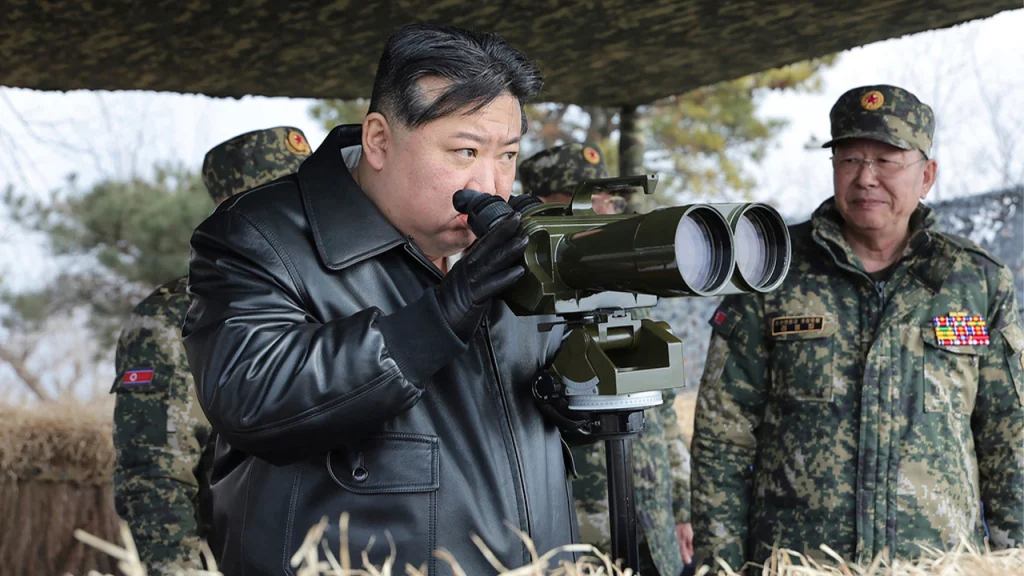North Korea’s recent ballistic missile test, the first since the US presidential election, signals a continuation of the regime’s assertive military posture and a rejection of closer ties with the incoming administration. This act of defiance follows a pattern of escalating tensions, marked by previous missile launches and increasingly hostile rhetoric towards South Korea and its allies. The timing of the test, shortly after the annual meeting of North Korea’s ruling Workers’ Party, suggests a deliberate strategy to project strength and underscore the regime’s commitment to its military program, despite international pressure and sanctions.
The Workers’ Party meeting itself served as a platform to denounce the strengthening partnerships between the United States, Japan, and South Korea, branding them a “nuclear military bloc.” This characterization reflects North Korea’s deep-seated suspicion of any alliance perceived as a threat to its sovereignty and security. The regime’s consistent portrayal of joint military exercises and defense cooperation as hostile acts underscores its determination to maintain a position of military strength and deter any perceived aggression. This narrative serves to justify North Korea’s own military buildup and its pursuit of nuclear capabilities.
Adding to the regional instability, North Korea’s involvement in the Ukraine conflict, through the provision of military assistance to Russia, has further strained its relationship with the West. This alignment with Russia, a country also facing international sanctions and condemnation, reinforces North Korea’s isolationist stance and its willingness to challenge the established international order. The regime’s support for Russia’s actions in Ukraine signals a shared defiance of Western influence and a disregard for international norms.
North Korea’s recent condemnation of South Korea as an “anti-communist outpost” following President Yoon Suk-Yeoul’s failed attempt to impose martial law in December highlights the deep-seated animosity between the two nations. The regime’s delayed response to the incident, delivered through its state-run news agency KCNA, underscores its calculated approach to propaganda and its intent to exploit South Korea’s internal political turmoil. North Korea’s portrayal of Yoon’s actions as a desperate power grab by a failing leader further fuels the existing tensions and reinforces the regime’s narrative of South Korea as an unstable and unreliable neighbor.
The KCNA report, which characterized Yoon’s attempt to impose martial law as a “shocking incident,” accused the South Korean president of wielding the “guns and knives of its fascist dictatorship.” This inflammatory language reflects North Korea’s consistent portrayal of South Korea’s government as illegitimate and oppressive. The regime’s emphasis on the “international community’s” supposed condemnation of Yoon’s actions further aims to isolate South Korea and undermine its credibility on the global stage. The report’s assertion that Yoon’s political future is in jeopardy serves as a veiled threat and an attempt to influence the outcome of the ongoing impeachment proceedings.
The escalating tensions on the Korean Peninsula, fueled by North Korea’s missile tests, its involvement in the Ukraine conflict, and its hostile rhetoric towards South Korea, underscore the complex and volatile security environment in the region. The regime’s unwavering commitment to its military program, coupled with its defiant stance against international pressure, poses a significant challenge to regional stability and the prospects for peaceful dialogue. The ongoing impeachment proceedings against President Yoon in South Korea further complicate the situation, creating additional uncertainty and potential for miscalculation. North Korea’s actions highlight the urgent need for diplomatic efforts to de-escalate tensions and prevent further deterioration of the security situation.










